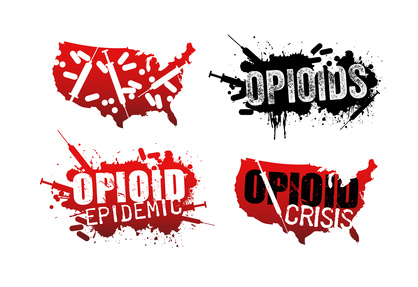On December 5, 2017, a wave of lawsuits filed by local governments across the United States stemming from the opioid addiction crisis were centralized by the Judicial Panel on Multidistrict Litigation (“JPML”) in the Northern District of Ohio before U.S. District Judge Dan A. Polster. The lawsuits have been filed against manufacturers and distributors of prescription painkillers. The cities, counties and states allege that: (1) manufacturers of prescription opioid medications overstated the benefits and downplayed the risks of the use of their opioids and aggressively marketed (directly and through key opinion leaders) these drugs to physicians, and/or (2) distributors failed to monitor, detect, investigate, refuse and report suspicious orders of prescription opiates. Both manufacturers and distributors are under an obligation under the Controlled Substances Act and similar state laws to prevent diversion of opiates and other controlled substances into illicit channels. The lawsuits assert that manufacturers and distributors failed to adhere to those standards, which caused the diversion of opiates into their communities. (To read the JPML’s transfer order, click here.)
A MDL is a type of legal proceeding that helps federal courts efficiently manage many similar cases filed in many different courts across the U.S. by allowing the temporary transfer of all of the federal civil lawsuits to one or more district courts for pretrial consolidation or coordination. The JPML is a group of federal judges designated by the Chief Justice of the United States, which has the responsibility for determining which cases qualify for treatment, as well as which district court to transfer and consolidate these cases. The transfers are made if the Panel determines that the transfers will result in the convenience of the parties and witnesses and will promote the just and efficient conduct of the cases. (For more information about MDLs and the JPML, contact Borgess Law.)
The JPML found that the Northern District of Ohio was an appropriate transferee district stating:
Most parties acknowledge that any number of the proposed transferee districts would be suitable for this litigation that is nationwide in scope. We are persuaded that the Northern District of Ohio is the appropriate transferee district for this litigation. Ohio has a strong factual connection to this litigation, given that it has experienced a significant rise in the number of opioid-related overdoses in the past several years and expended significant sums in dealing with the effects of the opioid epidemic. The Northern District of Ohio presents a geographically central and accessible forum that is relatively close to defendants’ various headquarters in New York, Connecticut, New Jersey and Pennsylvania. Indeed, one of the Big Three distributor defendants, Cardinal Health, is based in Ohio. Judge Dan A. Polster is an experienced transferee judge who presides over several opiate cases. Judge Polster’s previous MDL experience, particularly MDL No. 1909 – In re: Gadolinium Contrast Dyes Products Liability Litigation, which involved several hundred cases, has provided him valuable insight into the management of complex, multidistrict litigation. We have no doubt that Judge Polster will steer this litigation on a prudent course.
Borgess Law will continue to keep you updated on the status of the litigation.
Attorney Pamela A. Borgess, the founder of Borgess Law, LLC, has extensive experience with numerous national high-profile defective medical drug/device cases. For more information about the opioid litigation or to discuss a potential claim, contact Borgess Law at (567) 455-5955 or toll-free at (844) LAW-9144. You can also contact Borgess Law by submitting an online inquiry. Borgess Law never charges for initial consultations. We welcome any questions you may have.
